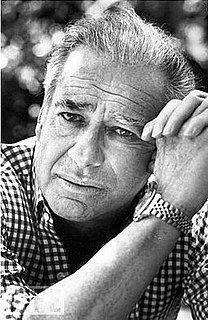A Quote by Harrison Ford
My occupation is assistant storyteller. It is not "icon."
Quote Topics
Related Quotes
Working with Robert, Robert [Elswit] is a storyteller. He's not a cinematographer, he's a storyteller. And to me, that's the graduation I hope to get to in my profession. That I'm not just an actor, I'm a storyteller. And I think that takes a long time in, when you have one job on a movie set. Makeup artists, actor, whatever. To graduate from just that to storyteller.
An icon means nothing to me. I don't understand what it means to anybody actually. It seems like a word of convenience. It seems to attend to the huge success of certain kinds of movies that I did, but there's no personal utility in being an icon. I don't know what an icon does, except stand in a corner quietly accepting everyone's attention. I like to work, so there's no utility in being an icon.
Icon. What is an icon? When someone is iconic it means they have established a certain kind of legacy possibly, and I think it does come with time. It's something in the arts, I feel. Maybe not, maybe it doesn't have to be in the arts exactly. I'm not really sure. But I don't think you are born an icon.
































